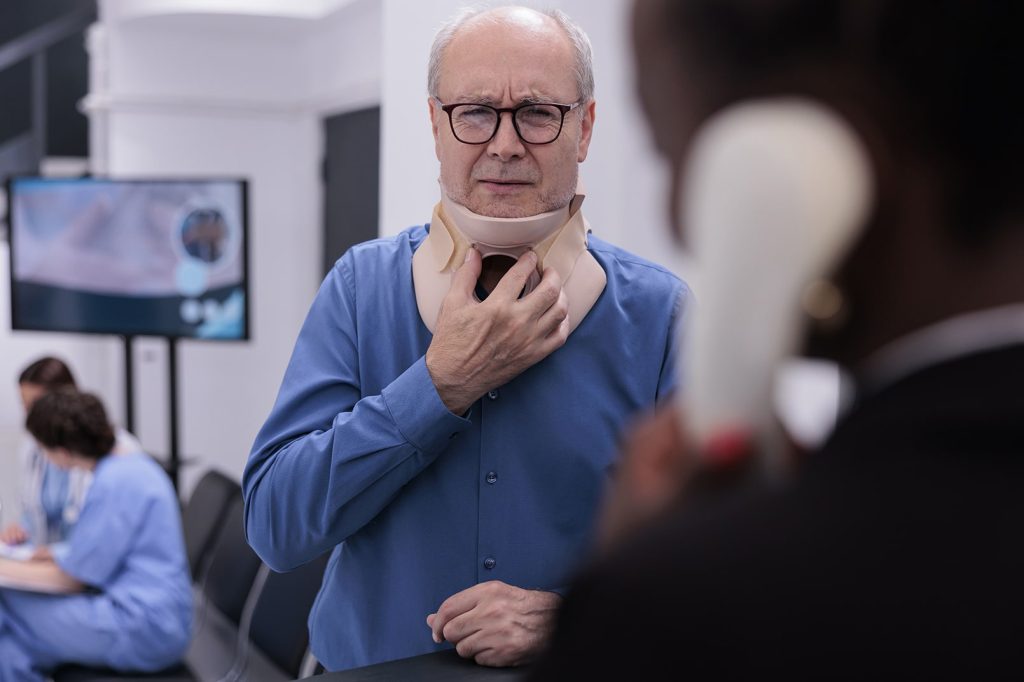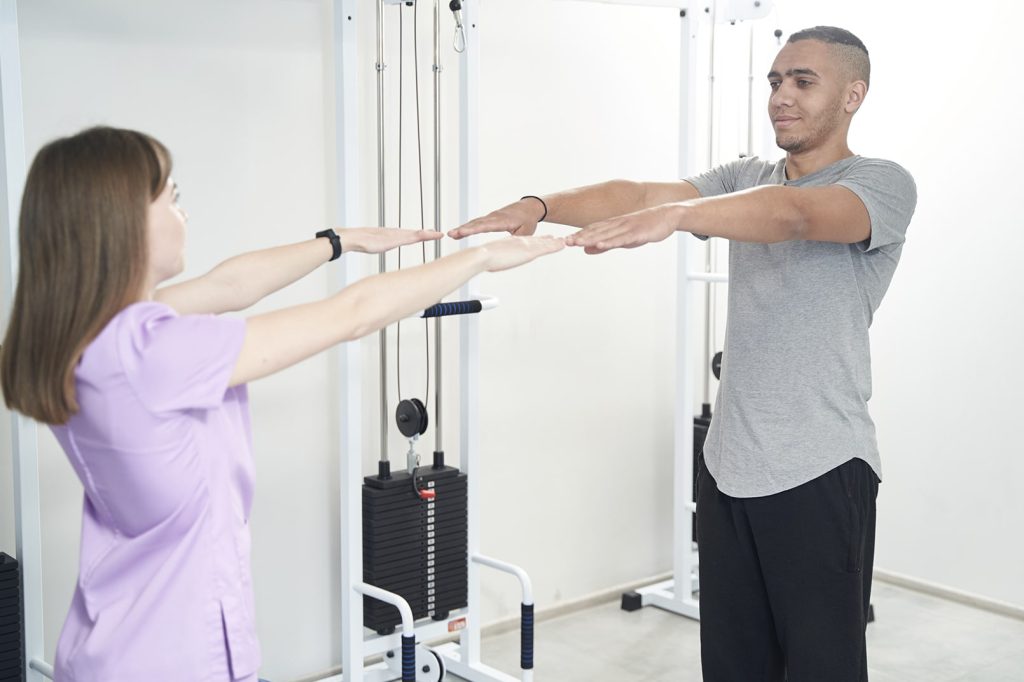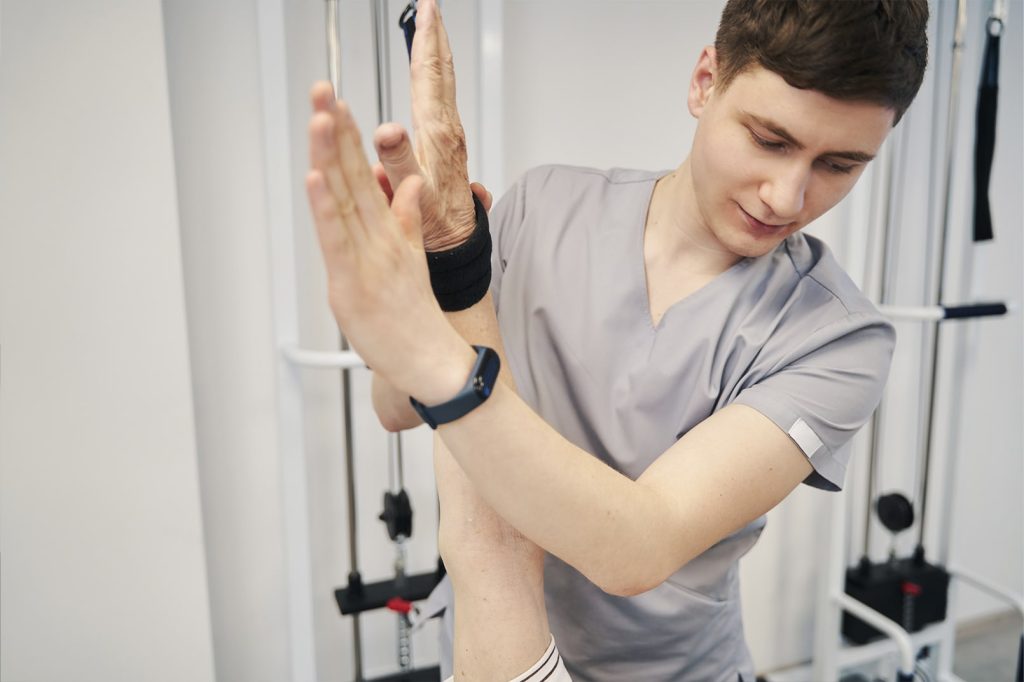Physiotherapy
Physiotherapy is a core service a Prime Rehabilitation, aiding accident victims in recovery; it helps restore movement and function affected by injury, illness, or disability. Physiotherapists recommend exercises to improve health, wellbeing, and mobility, and use manual therapy to relieve pain and stiffness.
Related Content:
For Instructing Parties:
For Claimants:
The benefits from access to our Nationwide Network
Clients are connected with expert physiotherapists nationwide with speed being paramount where patients are seeking compensation after accidents. Our experts tailor exercise plans and evaluate how physiotherapy can enhance recovery.

The Process
Our physiotherapists treat various musculoskeletal injuries, often resulting from accidents. Initial consultations assess pain, discomfort, and movement limitation, ultimately creating a personalized physiotherapy program, addressing short-term pain and long-term recovery goals.
Treatment Plans and Patient Involvement
Future sessions focus on treatment plans and self-management. Understanding their condition helps patients actively participate in their rehabilitation. Tailored exercises restore movement, supplemented by home programs. Manual therapy techniques, including massage and joint mobilization, are recommended based on individual needs.
Find out how we work with personal injury lawyers to expedite recovery, limit cost and understand our service levels & timelines.

Benefits of Physiotherapy After a Road Traffic Accident
Road traffic accidents (RTAs) can cause both physical and psychological trauma, making recovery challenging. Physiotherapy plays a crucial role in rehabilitation, aiding in both immediate and long-term recovery.
Key Physiotherapy Benefits Post-RTA Include:
Alleviates Pain
Physiotherapy helps manage and relieve pain through targeted exercises and treatments, enhancing blood flow and promoting healing.
Faster Recovery
Timely physiotherapy can speed up recovery by improving strength, flexibility, and reducing painful symptoms, allowing patients to return to normal activities sooner.
Prevention of Long-Term Damage
Early intervention can prevent chronic pain and mobility issues. By strengthening muscles and ligaments, physiotherapy reduces the risk of future complications.
Reduces Need for Surgery
Physiotherapy can sometimes eliminate the need for surgery by addressing minor issues before they escalate, promoting natural healing processes.

Common RTA Injuries Treated with Physiotherapy
- Whiplash: Involves overstretched soft tissues in the neck, causing pain and stiffness.
- Herniated Discs: Affect the spine, causing back pain.
- Knee Trauma: Results from blunt force, impacting the kneecap and ligaments.
Early Intervention
Starting physiotherapy soon after an accident promotes faster recovery. Physiotherapists provide education, personalized exercise programs, and hands-on treatments like massage and joint mobilization.


Our Approach
Our physiotherapy experts perform initial assessments to tailor recovery programs. They evaluate symptoms, medical history, and daily impacts to create individualized treatment plans, ensuring comprehensive care.
Contact Prime Rehabilitation today and get your clients back on the road to recovery with expert physiotherapy care.
Maintaining the highest standards
Our physiotherapists pass stringent vetting tests and must evidence that they comply with the industry standards set by the Chartered Society of Physiotherapy (CSP) and regulated by the Health and Care Professions Council (HCPC). These standards ensure safe, effective, and high-quality care for patients.
The Key commitments are:
01.
Professional Competence:
Physiotherapists must be adequately trained, registered and demonstrate ongoing professional development.
02.
Clinical Practice:
Adherence to evidence-based practices and guidelines to ensure effective treatment.
03.
Ethical Conduct:
Upholding confidentiality, informed consent, and patient dignity:
04.
Safety and Risk Management:
Ensuring patient and practitioner safety through proper risk assessments and hygiene practices.
05.
Communication:
Clear, accurate, and timely communication with patients and other healthcare professionals.

